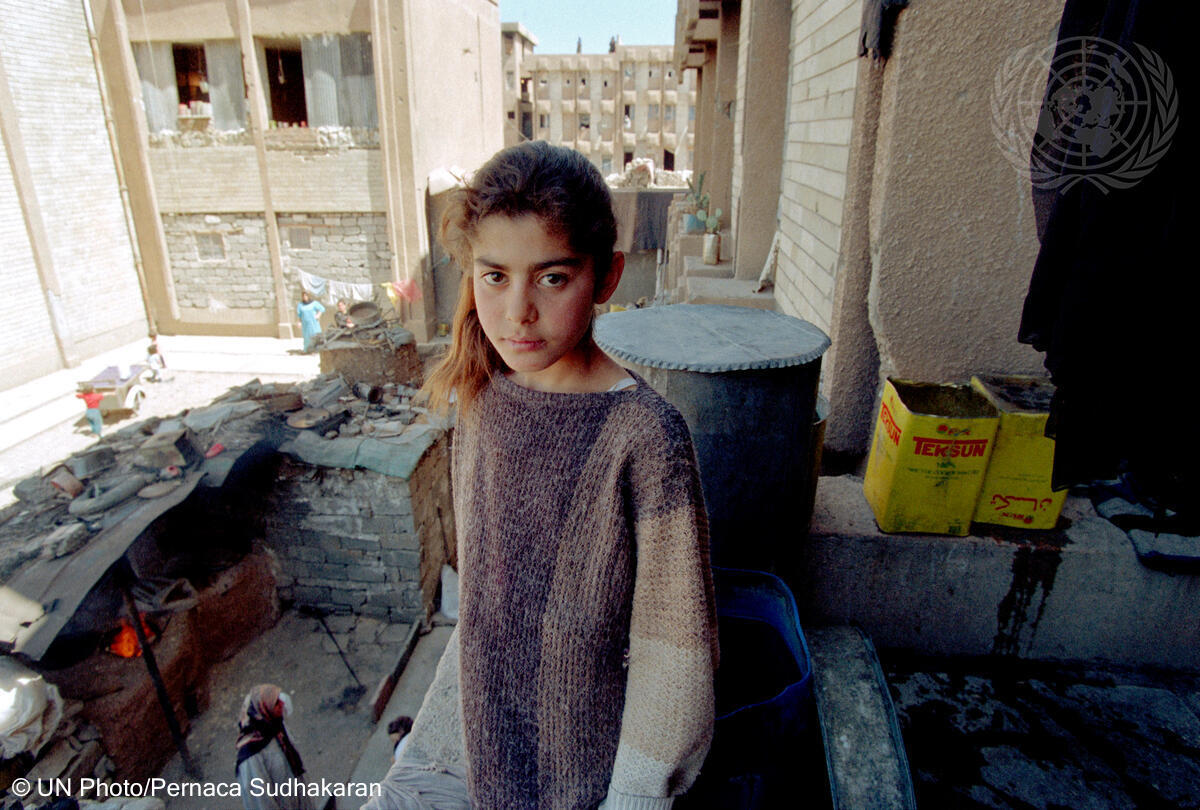
The information below is based on the Report of the Secretary-General to the Security Council (S/2021/312) issued on 30 March 2021.
Sporadic attacks by ISIL members continued in 2020, as the pandemic exacerbated socioeconomic and protection challenges, which particularly affected internally displaced persons. United Nations reports indicate that members of the Iraqi security forces harassed and sexually abused women in camps under their control, such as Ninawa. Moreover, as restrictions aimed at curbing the spread of COVID-19 curtailed economic activity, the use of harmful coping mechanisms, including child marriage, increased. Civilians who had been abducted and subjected to sexual slavery by ISIL in the Syrian Arab Republic continued to return to Iraq. According to the Directorate of Yazidi Affairs of the Ministry of Endowment and Religious Affairs of the Kurdistan Regional Government, of the estimated 6,417 Yazidis who were abducted, 3,543 people (1,204 women, 1,044 girls, 956 boys and 339 men) have been rescued and 2,874 remain missing (1,574 men and 1,300 women). Other affected groups, such as the Turkmen Shia, are not included in these figures. Conflict-related sexual violence remains underreported owing to a lack of trust in the justice system, a fear of reprisals, pressure from family members, and stigma codified in the law, which allows perpetrators to quash a criminal case by marrying their victims. The United Nations verified nine cases of conflict-related sexual violence against Yazidi girls which occurred in 2014, when the girls were kidnapped by ISIL and held as sexual slaves. Service providers recorded 30 cases perpetrated by armed actors in 2020, primarily against women. The United Nations also reported a case of sexual violence against a man while he was in detention. The man later relocated to another city, after receiving threats. Mothers who have children conceived as a result of rape continued to face barriers to obtaining identity cards and gaining access to services. Deeply rooted stigma, combined with gaps in service coverage and a lack of psychosocial support, continued to prevent survivors from coming forward to seek redress.
On 1 March 2021, the Council of Representatives of Iraq enacted the Yazidi Female Survivors Law, which provides for assistance, reparations and redress for Yazidi, Turkmen, Christian and Shabak survivors of atrocities committed by ISIL. In October 2020, an agreement was reached between the federal Government and the Kurdistan Regional Government to provide security and services in order to facilitate the return of Yazidis to Sinjar. At the same time, the Government closed or reclassified 16 camps and informal sites for internally displaced persons, 78 per cent of whom were women and children, who are highly vulnerable to economic shocks and protection risks, including sexual violence. Returnees perceived as being affiliated with ISIL were subjected to discrimination and, in some cases, to violence, by local populations. Criminal courts continued to use counter-terrorism frameworks to prosecute members of ISIL, with no charges of sexual violence having been brought to date. Christian, Shia and Yazidi religious leaders endorsed a statement stressing the importance of supporting survivors of sexual violence, combating stigma and holding members of ISIL accountable for their crimes. However, comprehensive legislation and social support for children born of sexual violence remain lacking.
Recommendation
In line with the 2016 joint communiqué, I call upon the Government to holistically address the needs of survivors, particularly those who have recently returned to their areas of origin following the closure of camps. I urge the Government to put in place comprehensive legislation in line with international standards, in order to ensure the effective prosecution of sexual violence as a stand-alone international crime.